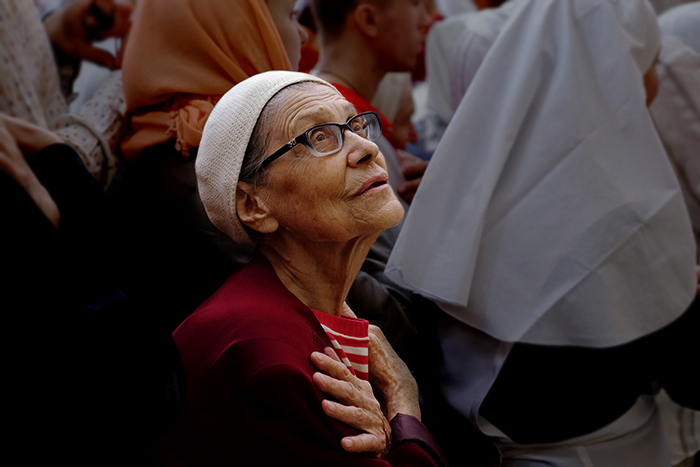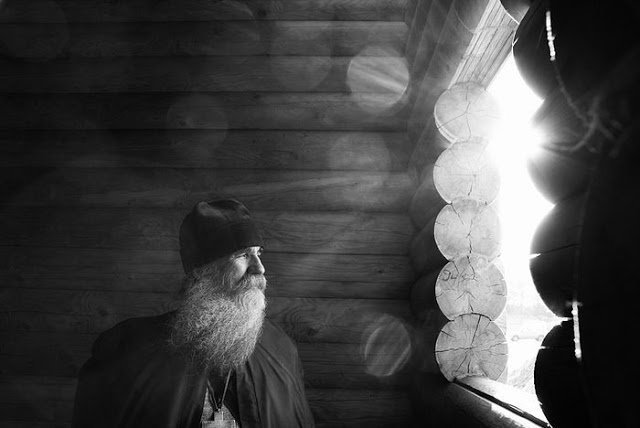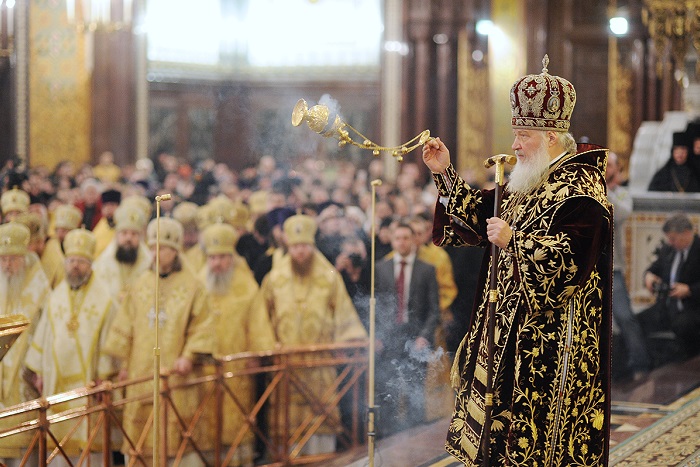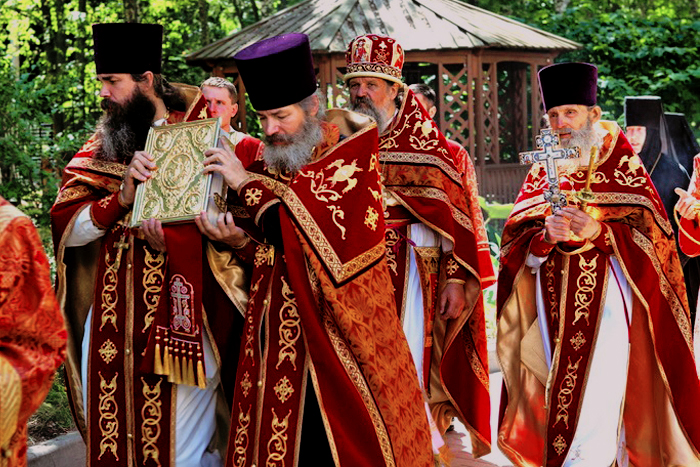
There are two important concepts in the Orthodox ascetics: the purification of the mind and the preservation of the mind, which can be called hygiene of the mind. Things that we see, hear, and read can affect our mind and our thoughts. For example, if we watch a talk show or political debates all evening long, or participate in a noisy feast, it will be difficult to tune in to thoughtful and focused prayer later on. We can draw an analogy with nutrition in this case: we usually carefully evaluate what we eat for fear of poisoning or harming the body. It is the same with the soul. What does it eat with? There are five senses (the soul has five spiritual “digestive tracts”; the main one is visual, then auditory). Harmful information, like bad food, can poison you mentally and emotionally.
When we come to church, our eyes are sanctified by the splendor of the temple (we look at the icons before us and see the faces of the saints), our ears hear spiritual singing and reading, our noses smell incense. Thus, we concentrate on the divine and fill our souls with it. Therefore, you should not throw a party, play soccer, or read a frivolous book before partaking of the Sacrament.
What to do if you plan to take communion but you do not have the opportunity to reconcile with someone due to distance or illness, or for any other legitimate reason?
Ask for forgiveness by a letter, or forgive that person in your heart and partake of the Sacrament with the intention to ask for forgiveness in person as soon as you see him or her.
How to deal with someone who does not want to reconcile with you?
You can be satisfied that you are reconciled with him in your heart and wish him peace and comfort. It is better to stop looking for reconciliation in word and deed, otherwise his rage will deepen and destroy him. Seek a chance to do him any good without him knowing it. When he finds out about it after the fact, he is more likely to come to his senses. When you meet him, maintain peace in your heart and pass by without touching him, and just pray for him (St. Theophan the Recluse).
How do you behave on the day of your communion?
St. Tikhon Zadonsky: “Upon Holy Communion, we must show improvement, demonstrate our love for God and our neighbor, our thankfulness, and we must work hard to live a new, holy and blameless life”.
The day of communion is a special day for a Christian when he mysteriously unites with Jesus. After the communion, we should ask the Lord to help us to preserve this gift with dignity and not to return to our previous sins.
We should try not to plunge into our daily affairs immediately after the communion, but to seek a little silence for reading and reflection.
One must be especially alert during the first hours after the communion: the enemy of the human race will do whatever it takes to make you defile the Sacrament, so that it would cease to sanctify you. It is easier to get it than to keep it; you can defile the Sacrament with ungrateful behavior, conflict, judgment, intemperance, and vanity. You should put as much effort as possible to guard peace in your soul and respect for others on the communion day.
It may be helpful to read the Akathist to Our Sweetest Lord Jesus Christ the night after the communion instead of the penitential evening prayers.
Translated by The Catalogue of Good Deeds



